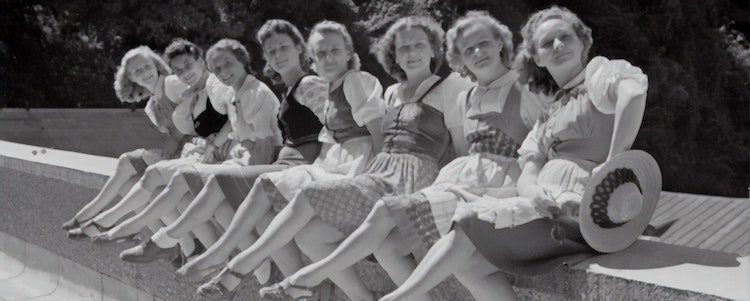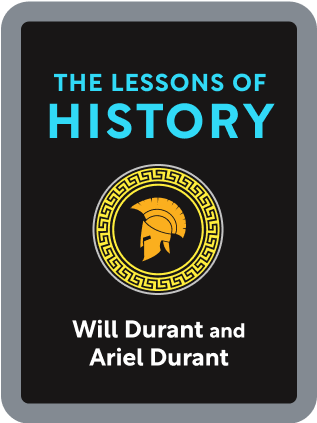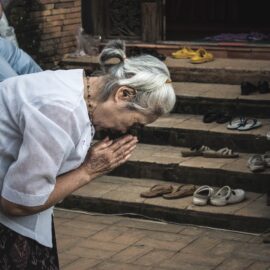

This article is an excerpt from the Shortform book guide to "The Lessons of History" by Will Durant and Ariel Durant. Shortform has the world's best summaries and analyses of books you should be reading.
Like this article? Sign up for a free trial here .
What is the story of morality in history? How have morals and vices changed over time?
In The Lessons of History, Will and Ariel Durant dedicate a chapter to morality in history, following its path from the hunting era to industrial times. They argue that morals reflect what is needed for the individual and society to survive at a given time.
Read more to learn about morality in history.
What Is Morality?
Morals are the rules by which a society exhorts its members to behave. Moral codes look superficially different between societies and across history, but they are quite universal and necessary.
Morality in History
Morals change with the times and economic engine, from hunting to agriculture to industry. The morals reflect what is needed for the individual to survive in the society, and for the society to survive in the greater world. To follow are descriptions of morality in history, from the hunting era to industrial times.
Morals in the Hunting Era
- Anything that promoted survival was paramount, including fighting and killing.
- Gluttony during the rare feast allowed storage of energy for scarcer times.
- Continuous reproduction was important to make up for high death rates.
- Many men may die on the hunt, and so some men took multiple women, and every man was expected to help women to frequent pregnancy.
- Loyalty to the tribe and wariness of outsiders promoted tribe survival.
- These base, almost primitive instincts may persist to today and appear as human vices.
Morals in the Agriculture Era
Morality in history shifted as the means of survival shifted.
- Hard work became more vital than bravery. Regularity was valued above violence, peace above war.
- The family was the unit of production, with the father at the helm.
- Children were economic assets; birth control was made immoral, a rule that became codified in culture and custom.
- Males were trained in farming from childhood, and became ready at 15 to set off on his own.
- Unlike in the hunting era, both genders survived equally. Therefore, monogamy could be practiced stably. Female chastity became important to increase the chance of finding a valued suitor and to avoid unsupported motherhood.
Morals in the Industrial Era
Once again, morality in history shifted as the means of survival shifted.
- Unlike the communal/familial structure in agriculture, people worked as individuals and were individually paid.
- With work no longer dependent on pure physical strength, females entered the workforce.
- Families separated, with individuals moving away to cluster in cities where industries were concentrated.
- Economic maturity to support a family came later, delaying marriage. Delaying marriage made chastity difficult. Non-reproductive sex was helped by contraception.
- The formalization of spread religious doubts, leading to the rise of secularism.
- Materialistic philosophies arose.
(Shortform note: Doubtless the character has changed again with the Information Age with computing and the Internet. We now prize niche personalization instead of mass consumption. Regional and national boundaries have blurred with the ease of global communication. Social groups have been redefined around interest, rather than mere geography – you connect with people who are like you, rather than people who happen to live around you.)
Moral Vices
Morality in history includes the matter of vices. Sin has flourished in every age, including prostitution, gambling, alcohol.
While our times may seem to have unprecedented moral laxity, it may not actually be unique in history. It may even be self-correcting – our children might come to see modesty as fashionable and more stimulating than nudity.
Much of our modern moral freedom is good – we’re relieved of the supernatural terrors of religious punishment, and so we can enjoy pleasures that don’t harm others or ourselves.
In times of war, morals become laxer. Citizens see their savings taxed away, women have unprecedented freedom, soldiers have tasted adventure and learned to kill.
But history is the tale of the exceptional, while ignoring the many stories of the ordinary. Behind the exciting facade of war and politics, murder and adultery, were millions of orderly homes and affectionate people.
The story of morality in history is an interesting one, and it can help us understand morals in society today.

———End of Preview———
Like what you just read? Read the rest of the world's best book summary and analysis of Will Durant and Ariel Durant's "The Lessons of History" at Shortform .
Here's what you'll find in our full The Lessons of History summary :
- What we can learn from studying 5,000 years of history
- How human nature hasn’t changed over thousands of years
- Why all civilizations, including ours, fall, and why we shouldn’t cry about it






